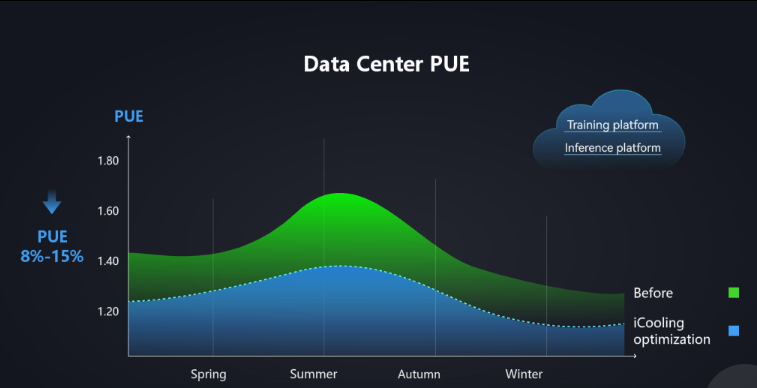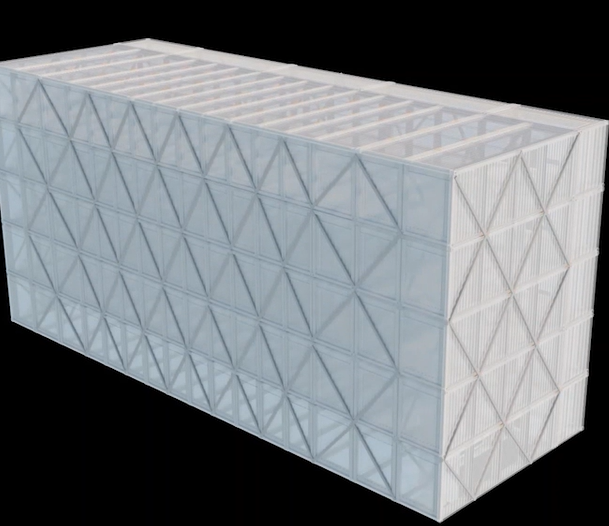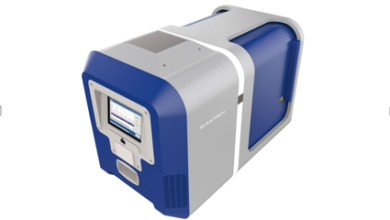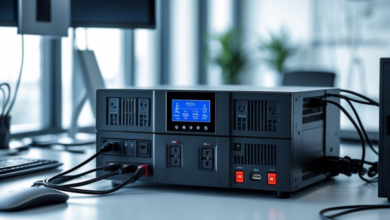What Are Container Data Centers and How Do They Work?

Container data centers are revolutionizing the IT infrastructure landscape. With their modular designs and flexibility, these portable data centers offer a range of advantages. Whether for edge computing or handling temporary needs, container data centers present solutions that traditional facilities might struggle to match.As we delve deeper into the world of container data centers, we’ll uncover what makes them stand out, how they work, their benefits, and their various use cases. This comprehensive guide aims to demystify container data centers, offering insights into why they are becoming increasingly popular among IT professionals.
What Is a Container Data Center?
Definition of Container Data Centers
Container data centers, sometimes known as modular data centers, refer to self-contained units that comprise all standard data center components. These units are housed within enclosed containers, typically the size of standard shipping containers. By integrating servers, storage systems, networking equipment, and cooling infrastructure within these compact units, container data centers can be rapidly deployed and easily transported.The essence of container data centers lies in their plug-and-play functionality. They offer the same capabilities as a traditional data center but within an easily movable and reconfigurable package. This flexibility makes them highly suited for dynamic IT environments where quick scalability and adaptability are paramount.
Key Features of Container Data Centers
Key features that distinguish container data centers include modularity, mobility, and standardization. Modularity refers to their scalable nature, where additional units can be added seamlessly to expand capacity. Mobility allows these units to be transported to various locations based on need, making them ideal for disaster recovery scenarios or temporary projects.Standardization ensures that each unit conforms to predetermined specifications, ensuring compatibility and ease of integration with existing IT infrastructure. These features collectively contribute to the rapid deployment and operational efficiency of container data centers.
How Do Container Data Centers Work?
The Modular Design of Container Data Centers
The modular design is a cornerstone of how container data centers function. Each module, or container, is a self-contained data center, equipped with all necessary components such as servers, power supplies, cooling systems, and networking equipment. These modules can operate independently or be combined to create larger data center infrastructures.The modularity allows for phased deployments, where businesses can start small and scale up as required. This phased approach not only reduces initial capital expenditure but also ensures that expansions can be executed with minimal disruption to ongoing operations.
Integration with Traditional Data Center Components
Integrating container data centers with traditional data center components involves connecting modular units to an existing IT ecosystem. This integration often requires ensuring compatibility with existing power and cooling systems, incorporating robust networking solutions for seamless data transfer, and implementing management software to oversee operations.In practice, this means plugging the container into a power source, establishing network connections, and integrating cooling mechanisms. Management software then oversees these elements, ensuring that the container data centers operate within optimal parameters and synchronize effectively with any existing infrastructure.
Advantages of Container Data Centers
Cost Efficiency
Container data centers are synonymous with cost-efficiency. They reduce capital expenditure by eliminating the need for large-scale initial investments associated with building traditional data centers. The modular nature allows businesses to invest incrementally, aligning expansion with growth.Operational costs also see a reduction. Standardized components ensure minimal training and management overhead, while the optimized design reduces power and cooling requirements. These factors contribute to a leaner operation, maximizing the return on investment.
Scalability and Flexibility
The scalability and flexibility offered by container data centers are unparalleled. Businesses can start with a single module and expand as demand increases. This scalability ensures that resources are used efficiently and can grow in tandem with business needs.Flexibility is another defining feature. Container data centers can be relocated based on strategic needs, allowing businesses to respond quickly to changes in demand or relocations. This adaptability makes them particularly suitable for dynamic or uncertain environments.

Faster Deployment and Mobility
Faster deployment is a significant advantage of container data centers. Traditional data center construction can take months or even years, whereas container data centers can be operational within weeks. This rapid deployment is crucial for businesses needing quick turnarounds.Mobility is another key benefit. The ability to transport these units means they can be deployed in remote or underdeveloped areas, brought online for specific projects, and relocated as organizational needs evolve. This mobility ensures that IT infrastructure can keep pace with strategic objectives.
Container Data Centers vs. Traditional Data Centers
Space and Energy Efficiency
Container data centers are designed with space and energy efficiency in mind. Their compact, standardized design means that every component’s placement is optimized for maximum use of available space. Energy efficiency is achieved through state-of-the-art cooling and power management systems that reduce waste and enhance performance.
Reduced Operational Costs
The operational costs of container data centers are typically lower than traditional data centers. This stems from efficient resource utilization, reduced energy consumption, and minimized staffing needs due to their standardized and modular nature. This cost-efficiency makes them an attractive option for many businesses.
Common Use Cases for Container Data Centers
Edge Computing
Edge computing requires data centers to be located close to the data sources to reduce latency and improve performance. Container data centers are ideal for this, thanks to their portability and easy deployment. They can be placed near factories, remote offices, or other locations where data is generated, thus ensuring efficient processing.
Temporary or Remote Locations
For projects or situations requiring temporary setups or operations in remote locations, container data centers provide an excellent solution. Construction sites, field research stations, and remote energy projects can benefit from these easily deployable data centers. Their robustness ensures reliable operation under varying conditions.
Disaster Recovery and Backup
Container data centers are also valuable for disaster recovery and backup. In the event of a natural disaster or other emergency, these units can be quickly deployed to replace or supplement damaged infrastructure. They ensure continuity of operations and data integrity, minimizing downtime and associated costs.
The Future of Container Data Centers
The future of container data centers looks promising, driven by the growing demand for flexible, scalable, and efficient data solutions. Innovations in technology will likely further enhance their capabilities, including improved energy efficiency, increased capacity, and better integration with emerging technologies like 5G and IoT.Businesses will continue to seek agile IT infrastructure solutions, and container data centers will remain at the forefront of this trend. As data processing needs evolve, so too will the designs and applications of these modular units, ensuring they remain relevant and highly sought after.
Conclusion
Container data centers offer a compelling alternative to traditional data centers. Their modularity, cost efficiency, and rapid deployment capabilities make them well-suited to today’s dynamic IT environments. Whether for edge computing, temporary setups, or disaster recovery, these units provide versatile solutions.Exploring and investing in container data centers could be a strategic move for organizations aiming to optimize their IT capabilities and meet future demands effectively. Whether starting small or scaling up, the advantages are clear, making them a vital component of modern IT strategy.



